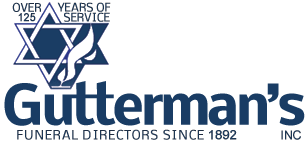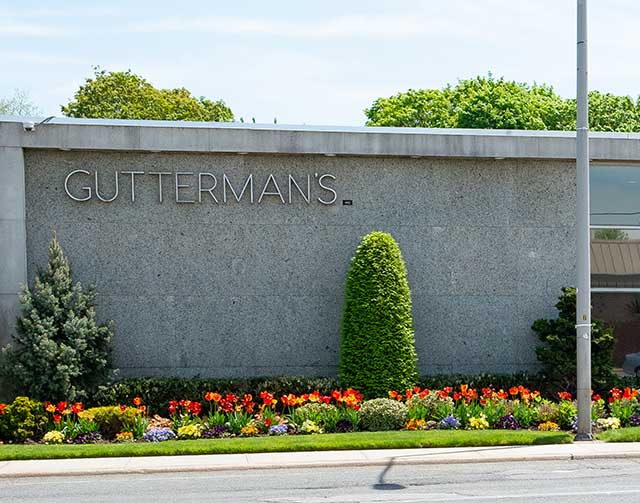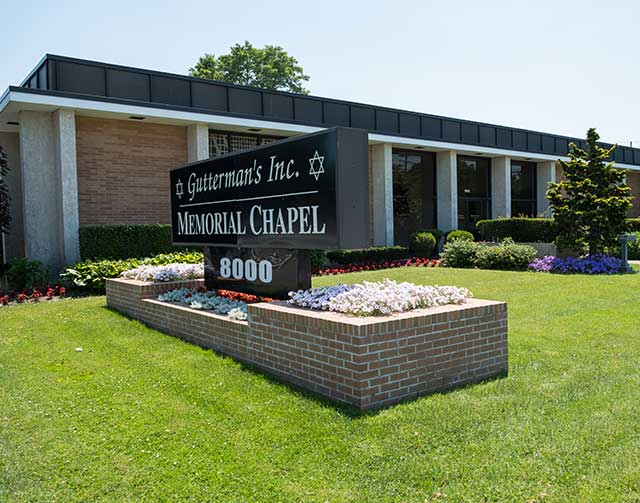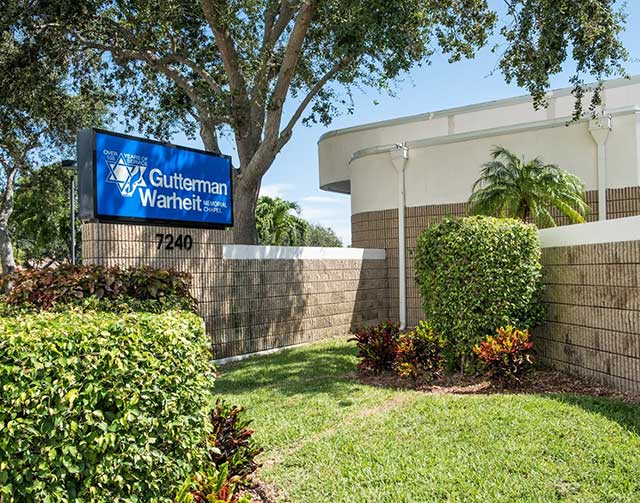Understanding Jewish Funeral Practices
Gutterman’s & Gutterman Warheit — Jewish Funeral Services in New York and Florida
Jewish funeral practices differ significantly from other faith traditions, and can vary within the different Jewish denominations. Here’s an overview of some of the unique rites and customs of Jewish funerals.
- There is no concept of an explicit afterlife in the Jewish faith, but many Jewish people believe that a person’s soul is judged after death.
- In the immediate aftermath of a person’s passing, mourners typically recite the “Dayan HaEmet,” a prayer that acknowledges God’s power as the true judge.
- Jewish law requires that the body be committed to the earth as soon as practical, ideally within 24 hours (though that standard has been relaxed somewhat over the last few decades).
- Jewish law requires that utmost respect be paid to the body, and that it cannot be left unattended, from the time of passing until completion of the burial. For that reason, a shomer (watcher or guardian) stays with the body at all times. The shomer is typically a family member or friend, a member of the congregation or burial society. The shomer customarily recites psalms (tehillim) while sitting with the body.
- Organ donation is permitted under Jewish law and may even qualify as a mitzvah, or good deed. Autopsies, however, are considered a desecration and customarily forbidden, unless required by law. In those instances, a rabbi familiar with autopsy procedures will typically be present.
- Embalming and the use of cosmetics are typically not part of the Jewish funeral customs. In addition, there’s no viewing, visitation or wake associated with a Jewish funeral. The family may participate in “kriah,” where a visible part of one’s clothing or ribbon is torn to represent the tear in one’s heart due to the loss.
- Flowers are not present at a Jewish funeral. Mourners may, however, make donations to charities in the name of the deceased.
- A Jewish funeral may be held at a synagogue, at a funeral home or graveside. As a general rule, when the service is in a synagogue, there will be pallbearers to escort the casket in and out of the sanctuary.
- According to Jewish custom, the body should be allowed to return to the earth. For this reason, caskets are made entirely of biodegradable materials, so that they will organically breakdown.
A Glossary of Important Jewish Funeral Terms and Practices
- Aninut (ah-nee-NUTE)—The period of time between learning of a person’s passing and their burial.
- Aron (ah-ROHN)—This is the cabinet where a Torah is stored. It is also the Hebrew word for casket.
- Chevra Kadisha (Kheh-vruh kah-DEE-shuh)—The Jewish burial society, often given the responsibility for preparing the body for burial and for supporting those in mourning.
- El Maleh Rahamim (ell mah-LEH rakh-hah-MEEM)—Translated from Hebrew as “God full of mercy,” this is the prayer recited at the funeral.
- Kaddish (KA-dish)—A traditional prayer recited during shiva and shloshim.
- Kriah or keriah (KREE-ah)—The tearing of one’s clothing or a ribbon to symbolize the tear in one’s heart.
- Kvurah B’karka (Kvoo-rah B’kar-kah)—Burial in the earth.
- Matzevah (Mahtz-uh-VAH)—A headstone, footstone or other monument.
- Shiva (SHEE-va)—A 7-day mourning period following the funeral.
- Shloshim—The 30 day period immediately following the burial of a loved one.
- Shomer (SHO-mer)—A person who watches or guards the body between death and burial.
- Tahara (tah-HAH-ruh)—The traditional cleaning and ritual preparation of the body, most often performed by members of the Chevra Kadisha.
- Yahrzeit (YAHR-tzite)—The anniversary of a loved one’s death. Custom requires annual commemoration of the date, typically with the lighting of a candle.
Serving You in Your Time of Loss
At Gutterman’s and Gutterman Warheit, with chapels in New York and Florida, we offer comprehensive funeral services and products to the Jewish community. We have always viewed our work as a calling. Our firm has been family owned and operated for more than 125 years, and many of our employees have spent their entire careers with us.
We have a comprehensive understanding of the unique funeral rites and customs in all Jewish traditions. We’ll answer all your questions and work hard to make certain you have all the information you need to make the right decision.
To learn how we can assist you, or for immediate help after the death of a loved one, call us at one of the numbers listed below. We are available 24 hours a day, 7 days a week to support and assist you. We offer worldwide funeral shipping services
Rockville Centre
Long Island, New York
Contact us: 516.764.9400
Woodbury
Long Island, New York
Contact us: 516.921.5757
Gutterman Warheit Boca Raton Florida
Boca Raton, Forida
Contact us: 561.997.9900 | 800.992.9262
Brooklyn, New York
Brooklyn: 718.284.1500
Gutterman's & Gutterman Warheit — Where Relationships Matter
Family Owned and Operated Since 1892

Home | Services | NY Pre-Plan | Pre-Planning FL | Jewish Funeral Practices | Jewish Funeral Process | Monuments | Burial | Resources | Blog | Contact



